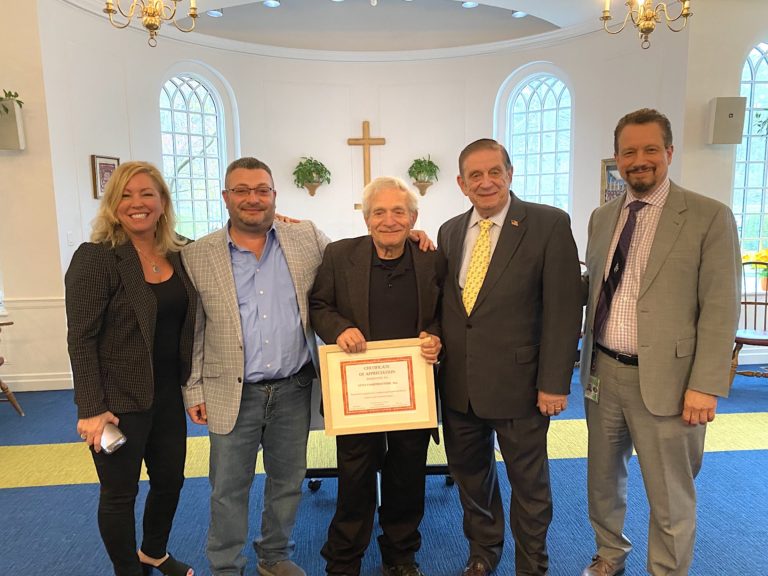By Marek Zabriskie
I am rethinking being away for a significant part of the summer as Greenwich is so fabulous from June through August. Nonetheless, many of us vanish. But what’s special is that we return home in the fall to our houses and our spiritual places of worship.
Home is where the heart is and where the door is open and where we always feel welcomed. Home sweet home. There’s no place like home, especially a spiritual home.
For most of us the word “home” suggests comfort, warmth, acceptance, dignity, and identity. Equally positive are associations evoked by words such as “homeland,” “home free,” and “home run.” When someone dies, we say she is “going home.”
Frederick Buechner, who recently died, writes, “The word home summons up a place – more specifically a house within that place – that you have rich and complex feelings about, a place where you feel, or did feel once, uniquely at home, which is to say a place where you feel you belong and that in some sense belongs to you, a place where you feel that all is somehow ultimately well even if things aren’t going all that well at any given moment.”
Most of us have a special house where we have lived that stands out in our mind. Then there is the home in which we raised our children and tried our best to create a safe, loving world for our children and for ourselves. If we were lucky, we were born into a home like that.
The longing for home is so universal that there is a special word for it – homesickness. When I finished high school I boarded a plane and flew to Scotland to play for a semi-professional soccer team in Aberdeen. I had big dreams, but I was soon overcome by homesickness. Scotland didn’t feel like home to me at age 18.
There’s an own homespun aphorism which says, “You can’t go home again, but you can always go back to church.” In each of the four wonderful churches that I have served, newcomers would often say is, “I feel like I had come home when I entered this church.” Indeed, a good church is a spiritual home and vital to our lives.
In his autobiography Surprised by Joy the great Christian writer C.S. Lewis described how from his earliest years he was haunted by an experience of what he called longing, or nostalgia, a yearning for a time and a place that he could never exactly identify, but that always seemed like the place he most deeply belonged. He experienced this longing most intensely while listening to certain kinds of music, or reading the mysterious myths of ancient times.
And he associated it too with what he called the idea of autumn. Do you know that rare, almost ineffable experience of autumn? The intense beauty of these cool, clear days, soon to be filled with the leaping flames of colorful leaves – but all the time sensing how soon it will pass, how the days are drawing shorter, how we can’t cling to this. And what we feel most deeply is our desire to hold on to this moment, this time, that somehow this is where we belong, but that we can’t hold onto it forever. We long for a home we cannot reach.
As each of us needs a homeland, every family needs a home, and every Christian needs a house of God that is open to members and visitors alike. Every Christian needs a community that works to find love and to defeat hate, a place where everyone is made to feel “at home.”
I suppose the most famous home-coming in all of Scripture is the return of the Prodigal Son. The parable is really not so much about the son who makes a mess of his life and realizes how much he needs his home, but it’s a story about a father who never gave up and couldn’t wait to run and embrace his wayward son. Jesus told this incredible story to remind us of the unbelievable good news that there is more mercy in God than sin in us.
I like to think that as our members drive or walk to Christ Church, they see a glorious father or mother figure ready to run, embrace and forgive their trespasses and whatever they have done wrong. And wouldn’t be wonderful if that kind of image could occur around the world, for the Prodigal Son mirrors the plight of all of us.
Some people think that forgiveness is for sissies. But to me forgiveness signifies the destructive power of evil and the dismantling of evil itself. Forgiveness signifies that while sin estranges us from God, sin never estranges God from us. No matter how orphaned we feel, we are never fatherless from God. Surely, that is why we return to our spiritual home.
Church is where those who think that they are nobodies discover that they are priceless human beings. We come home to church where we can stop trying to prove ourself; God has already taken care of that. All we have to do is be that unique person God created us to be, to receive our identity as a gift from God, not as an achievement of our own. We come to church – our spiritual home – to receive our forgiveness and identity, which are priceless in God’s sight. Welcome back to your spiritual home.
The Rev. Marek Zabriskie is passionate about building community and helping people come spiritually alive and discover deep and lasting joy.




